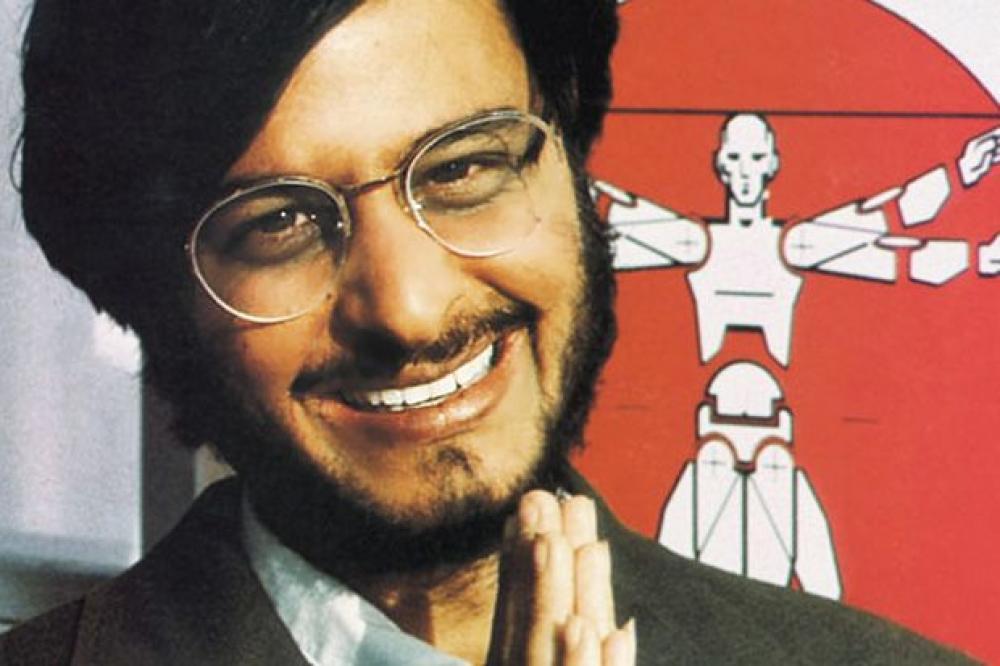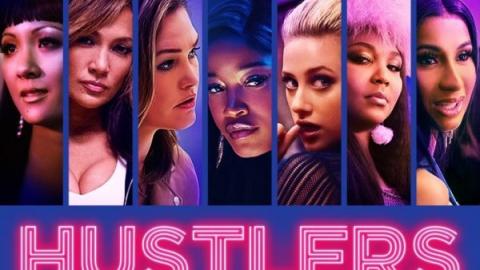Is Aziz Ansari Anti-Black?
Share with friends

No.
In episode four of his Netflix original, Masters of None, Aziz Ansari argues that Indians are underrepresented, and often invisible, in mainstream American Cinema. Ansari’s character Dev notes that the majority of Indian actors seen on TV and in movies are stereotyped and offensive one-dimensional clichés such as taxi drivers and convenience store owners. Dev takes particular offense to Ben Jhaveri from the movie Short Circuit 2, an Indian character played by the notably non-Indian actor, Fisher Stevens.
Check out our interview with Fisher Stevens, in which he discusses playing Ben Jhaveri.
Dev’s points regarding the lack of Indian visibility are valid – how many Indian actors can any of us name off the top of our head? Of course there’s Aziz Ansari, Mindy Kaling, and Kal Penn (probably more readily identified as his character Kumar), but what other Indian actors would most people recognize? There were Indians cast as leads in shows that debuted this year (Priyanka Chopra in Quantico and Meera Rohit Kumbhani in Weird Loners, the latter of which was cancelled after six episodes) but the South Asian community continues to lag far behind nearly every other minority community in Hollywood exposure.
Ansari not only makes claims about Hollywood, but goes further to argue that South Asian struggles are marginalized compared to the struggles of other minority groups. Response to the episode was generally positive, however, some have argued that Ansari’s script was racist and a perfect example of displaced abjection. In particular, Dev’s assertion that, “people don’t get that fired up about racist Asian or Indian stuff. I feel like you only risk starting a brouhaha if you say something bad about black people or gay people,” was called ignorant, anti-black, and homophobic by BlackGirlDangerous.
"Framing the conversation as if Black representation is in opposition to South Asian representation stifled what could have been a valuable discussion," says the blogger in her Open Letter to Aziz Ansari. You shut down an opportunity for dialogue. You could have scripted a nuanced response. Instead, you scripted Denise to reply, 'Who’s my girl? Like, Oprah? Or Beyoncé? Oh, shit, I got the heavy hitters. Nevermind.' That final 'nevermind' took space away from Denise, who could have offered a rebuttal to your character’s anti-Black racism."
But is such a complaint valid? Dev’s comments may be a bit insensitive, but they aren’t inaccurate. Let’s take, for example, the 2008 drama Slumdog Millionaire, which is probably as close as most Americans have been to watching an “Indian” film in the previous decade. Slumdog Millionaire is, of course, not a Bollywood movie – it wasn’t even made by Indians. Instead, the film was written, directed, and produced by British men.
Indians were not appreciative of the British film; only 25% of available seats for the film’s debut were filled in India. Critical response within the country wasn’t much better – an Indian film critic claimed that the film’s subject matter would be “familiar to the point of being banal,” among Indian audiences despite also calling the work a “great, fun film with a big heart.” An Indian man interviewed by Time Magazine in 2009 claimed that the movie depicted things seen in large Indian cities, such as Mumbai, on a daily basis; the Indian people wouldn’t want to think about the depressing reality of slum life while being “entertained.”
But response among Indians was not just limited to being bored by its subject matter. The film has been criticized for invocations of what has been called “poverty porn” and “slum voyeurism.” Essentially, according to many Indians, Slumdog Millionaire’s successes were largely dependent on exaggerations and clichés about the country – notably its levels of poverty and overpopulation. Even before its release, Slumdog created controversy within the subcontinent. One of India’s most famous actors, Amitabh Bachchan, publically claimed that the film probably would not have generated as much attention if it had been directed by an Indian. Leading up to the film’s release, slum dwellers protested outside the home of Anil Kapoor, one of the film’s leads. To say the film was anything but poorly received in the nation in which it is set would be a boldface lie.
But why does Indian response to Slumdog matter? It matters because it helps prove Aziz correct - the lack of pushback against Danny Boyle and Slumdog in the United States indicates that, at the very least, the media doesn't consider Indian response to racism an interesting news topic. One would assume that if, for example, any of Tyler Perry's movies had been written and conceived by an all white crew, there would have been considerable protests covered by mainstream American media outlets. This was clearly not the case for Slumdog, a film made by the colonial power that controlled India until 1947.
Ultimately, what's really important about Indians on TV is not the consideration of the lack of South Asians on TV, but the commitment to solving the problem the episode addresses. Dev struggles to understand why a TV show can't have multiple Indians in it while Ansari has created a show actively opposing all the stereotypes and “rules” the show takes issue with. The cast of the episode includes several non-stereotyped Indian characters. Dev is not a convenience store owner but a struggling actor. His friends are not only token white men (although these friends do exist), but other minorities and disenfranchised groups. The show doesn't have a straight white male leading character, making it strongly oppositional to the conventional sitcom paradigm.
But what are we to make of claims of Aziz Ansari's anti-blackness? Sure, his script may give priority to South Asian struggles, but this isn't necessarily at the expense of other minority groups. Ansari hasn't written in women and Black characters based on stereotypes, and, although they may be axial characters, they are certainly not completely ignored within the show. Furthermore, the issue of displaced abjection is certainly not unique to Masters of None. The Mindy Project had the same accusations leveled towards it for its treatment of the character, Tamra, and most if not all shows with large minority casts in recent history have been criticized for being less progressive than they seem.
At the end of the day, Masters of None is probably one of the most progressive shows in production regarding its racial politics. Although Ansari doesn’t perfectly navigate the waters of racism, few, if any, shows have. If nothing else, Masters of None is a step in the right direction towards equality for Indians on TV.




